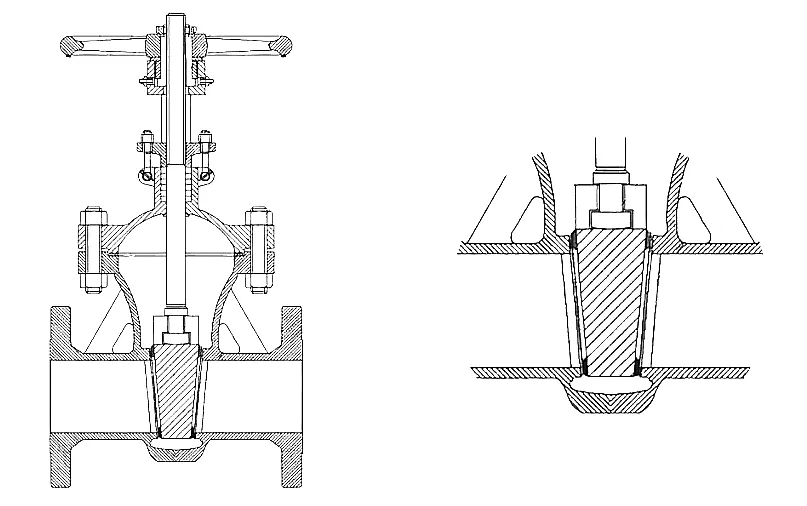Stainless Steel Tubing and Accessories for Various Industrial Applications
Understanding Stainless Steel Pipes and Fittings
Stainless steel pipes and fittings are essential components in various industries, providing durability, resistance to corrosion, and a high strength-to-weight ratio. Their unique properties make them the favored choice for plumbing, water supply, gas distribution, and numerous industrial applications. This article will explore the characteristics, types, and applications of stainless steel pipes and fittings, highlighting their significance in modern infrastructure.
Characteristics of Stainless Steel
Stainless steel is an alloy composed primarily of iron, chromium, and often nickel, along with other elements. The addition of chromium (at least 10.5%) is what gives stainless steel its exceptional corrosion resistance. This makes it ideal for environments susceptible to rust and degradation. Some noteworthy characteristics of stainless steel include
1. Corrosion Resistance The chromium content forms a passive layer of chromium oxide on the surface, protecting the underlying metal from oxidation and corrosion. 2. Mechanical Strength Stainless steel can withstand higher pressures and temperatures compared to many other materials, making it reliable in demanding environments. 3. Aesthetic Appeal The natural luster of stainless steel makes it visually appealing, which is an added advantage when aesthetics are considered. 4. Hygienic Properties Its non-porous surface makes stainless steel easy to clean, an essential factor in industries like food processing and pharmaceuticals.
Types of Stainless Steel Pipes
Stainless steel pipes come in various grades, each suited for different applications. The most common types include
1. 304 Stainless Steel Pipes This is the most widely used grade. It offers excellent corrosion resistance and is ideal for a wide range of applications, including food and beverage production, chemical processing, and marine environments.
2. 316 Stainless Steel Pipes This grade contains molybdenum, which provides additional resistance to saltwater and acidic environments. It is the preferred choice for applications in marine, chemical, and pharmaceutical industries.
3. Duplex Stainless Steel Pipes These pipes combine the advantages of austenitic and ferritic steel, offering higher strength and improved resistance to stress corrosion cracking. They are utilized in oil and gas industries, pulp and paper processing, and in high-pressure applications.
Types of Fittings
stainless steel pipes and fittings

Stainless steel fittings are integral to piping systems, facilitating the connection of pipes, alteration of flow direction, and enabling a secure seal. Common types of stainless steel fittings include
1. Elbows Used to change the direction of the pipe, available in various angles such as 45 and 90 degrees.
2. Tees These fittings connect three sections of pipe, allowing for a branch line to be established in the system.
3. Reducers Employed to connect pipes of different diameters, reducers help streamline the flow of fluids.
4. Flanges Used to connect pipes to other equipment, flanges provide a reliable and secure method of joining different sections.
Applications of Stainless Steel Pipes and Fittings
The versatility of stainless steel pipes and fittings has led to their widespread use across multiple industries
- Construction and Civil Engineering Stainless steel piping is used in building frameworks, roofing, and bridges due to its strength and longevity. - Chemical and Petrochemical Plants Their resistance to corrosive substances makes stainless steel ideal for transporting chemicals and fuels. - Food and Beverage Industry The hygienic properties of stainless steel ensure safety and cleanliness in processing and packaging.
Conclusion
Stainless steel pipes and fittings represent a blend of strength, durability, and aesthetic appeal that makes them indispensable in countless applications. Their resistance to corrosion and ability to withstand high pressures underline their importance in industries ranging from construction to food processing. Understanding their properties and uses can aid in selecting the appropriate materials for any project, ensuring a long-lasting and efficient solution. In a world increasingly focused on sustainability and reliability, stainless steel will undoubtedly continue to play a crucial role in the development of modern infrastructure.
-
3 types of check valves maintenance tipsNewsAug.23,2025
-
Ball valves types with trunnion mounted designNewsAug.23,2025
-
Butterfly valve company production capabilitiesNewsAug.23,2025
-
Fisher globe valve technical specificationsNewsAug.23,2025
-
Types of gaskets for flanges selection guideNewsAug.23,2025
-
Wedge gate valve suppliers quality standardsNewsAug.23,2025
-
Breakthrough in Domestic Low Temperature Valve Technology in ChinaNewsAug.18,2025




